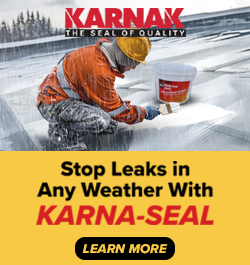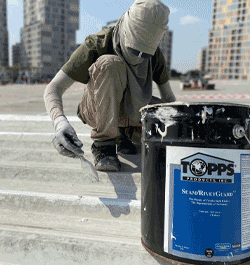UP TO THE MINUTE
OSHA’s Whistleblower Protections During the Covid-19 Crisis

By Ben Briggs & John Brock, Cotney Construction Law LLP.
The onset of COVID-19 has employers throughout the construction industry adjusting workplace procedures to account for the virus’ threat to employee health.
As with all workplace health-related matters, compliance with OSHA regulations is important for businesses operating during this COVID-19 pandemic. OSHA has issued various advisories with guidance on virus-related practices, such as the implementation of personal protective equipment and employee hygiene requirements. Many businesses are familiar with the applicable safety and health standards of their particular trade or industry. However, there is another section of the Occupational Safety and Health Act that may prove to be as critical for employers as OSHA’s virus-related requirements themselves: the Act’s anti-retaliation or “whistleblower” section.
Section 11(c) of the Occupational Safety and Health Act protects employees who engage in “protected activity” from being subject to employer retaliation. Protected activity in Section 11(c) is defined broadly in an effort to encourage employees to be active in matters of safety and health. Examples of protected activity include reporting an unsafe condition to a supervisor, making an OSHA complaint, providing testimony in an OSHA case, requesting copies of company safety materials and procedures, and holding discussions about safety and health with other employees or union representatives. An employer who takes an adverse action—such as termination, suspension, demotion, or a reduction pay or hours—against an employee because the employee engaged in protected activity may be liable for significant damages, including backpay, compensatory damages, costs and attorneys’ fees, and non-pecuniary losses such as emotional distress.
Significantly, protected activity under Section 11(c) includes employees refusing to perform a task they reasonably believe presents a danger of death or serious injury. Specifically, the Federal regulations provide that an employee has the right to refuse to perform a task if the employee 1) reasonably believes the activity will lead to serious injury or death, 2) refuses to perform the task in good faith, 3) has no reasonable alternative, 4) has insufficient time to eliminate the danger through regular statutory enforcement channels, and 5) has sought, but been unable to obtain, correction of the dangerous condition from the employer. This protected refusal to work is particularly relevant now, amidst the ongoing COVID-19 pandemic, as many employees are concerned about contracting the virus while at work.
Under the pertinent legal standard, employees may be permitted to refuse to work if workplace policies and procedures do not eliminate a reasonable concern of contracting COVID-19. And, significantly, employers may be prohibited from taking any adverse action against an employee who reasonably refuses to work due to a legitimate coronavirus concern. Keep in mind that in order for an employee’s refusal to perform work to be protected, the concern about the alleged dangerous condition must be objectively reasonable. However, because guidance and rules related to coronavirus are constantly changing, it can be difficult to determine what safety precautions are sufficient to satisfy employee concerns. Regardless of that difficulty, employers must carefully consider what safety measures are reasonable and sufficient for their business if they intend to compel employees to work. Business owners must also plan how to handle employee concerns about workplace safety and how to respond if an employee refuses to work due to COVID-19 concerns. In evaluating how to respond to employee concerns and refusals to work, businesses should be mindful that they can resolve an employee’s refusal to perform work by correcting the dangerous condition or creating a reasonable alternative to the assigned task.
Given that the COVID-19 pandemic is still relatively new, there is limited legal guidance as to what specific coronavirus concerns or work refusals are protected under Section 11(c). Thus, employers should monitor the COVID-19 guidance from government and health officials to ensure the employer’s coronavirus protective measures comply with the ever-developing safety guidance. Also, as with any inspection initiated by OSHA, documentation is important in whistleblower cases. If your business is the focus of a Section 11(c) action, having documentation supporting any adverse action taken against the employee at issue may protect your business from the significant damages allowed by the statute.
As the COVID-19 pandemic continues, employers should reasonably expect an increase in workplace safety complaints and concerns from employees. Employers that understand the underlying law and how to handle protected activity under Section 11(c) will be in the best position to limit their exposure to OSHA whistleblower claims.
Cotney Construction Law is an advocate for the roofing industry and serves as General Counsel for NRCA, FRSA, NWIR, RT3, TARC, WSRCA and several other roofing associations. For more information, visit www.cotneycl.com.
Learn More about Contey Construction Law, visit their RCS Directory.
Disclaimer: The information contained in this article is for general educational information only. This information does not constitute legal advice, is not intended to constitute legal advice, nor should it be relied upon as legal advice for your specific factual pattern or situation.




















Comments
Leave a Reply
Have an account? Login to leave a comment!
Sign In